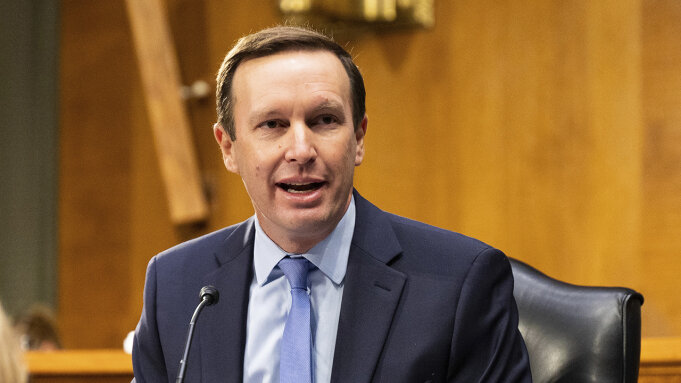U.S. senator: JCPOA is our only viable option

TEHRAN — A day after some Senate leaders emerged from a classified briefing with Secretary of State Tony Blinken offering a pessimistic outlook on the chances of re-entering the 2015 nuclear deal with Iran, Sen. Chris Murphy (D-CT) said that that the deal remains the U.S.’s only viable option for dealing with Iran.
Murphy, who did not attend Wednesday’s meeting and said he was not familiar with what was said, has been one of the most prominent voices in the Senate in favor of quick reentry into the 2015 deal, including urging Joe Biden to roll back sanctions imposed by the Trump administration in exchange for Iranian compliance with the deal.
“I don’t accept the premise that we can’t find a way back into this deal. It will require hard choices by the United States, difficult choices by the Iranians, but I don’t see a path forward without being inside this deal,” Murphy told Jewish Insider.
“I still believe that our only course of action is to get back into the deal,” he reiterated.
Barring an agreement, the Iranians will continue to “ratchet up their provocation of their allies and their destabilizing activity, and they will speed towards a nuclear weapon,” Murphy suggested, a situation he described as “a disaster.”
Iran has been insisting that its nuclear program is quite peaceful and its remedial measures are merely a response to the U.S. abrogation of the deal and introduction of sweeping sanctions against Iran in violation of UN Security Council Resolution 2231 that confirms the 2015 nuclear deal.
Iran’s move to roll back restrictions on its nuclear program is in accordance with paragraph 36 of the JCPOA which has “provided a mechanism to resolve disputes and allows one side, under certain circumstances, to stop complying with the deal if the other side is out of compliance.”
Iran started to gradually remove the ban on its nuclear activities one year after the former U.S. president quit the multilateral deal, waiting for the European signatories to the deal to compensate for the U.S. sanctions.
Negotiations to revive the JCPOA began in April and made significant progress. However, Iran is seeking a guarantee that the United Sates would not withdraw from the deal again. So far the U.S. has refused to make such a commitment.
Leaders of Israel’s new government told a visiting bipartisan congressional delegation they oppose President Biden and the United States re-entering the Iran nuclear deal, according to participant Rep. Nicole Malliotakis.
The Staten Island Republican congresswoman said new Prime Minister Naftali Bennett and Defense Ministry officials said repeatedly in meetings in Jerusalem that they are “very opposed to the United States re-entering the Iran deal” — at least without substantial changes, the New York Post reported on July 13.
New Prime Minister Naftali Bennett’s position mirrors that of his predecessor, Benjamin Netanyahu, a fierce opponent of the Iran accord.
A bipartisan delegation of the House Foreign Affairs Committee, headed by Chairman Greg Meeks (D-NY), participated in the five-day West Asia trip last week that included visits to Israel, the West Bank, and Qatar.
A group of Republicans in the House of Representatives is demanding the Biden administration have Congress review and assess any new nuclear deal with Iran, citing a 2015 law.
Rep. Michael McCaul of Texas and other Republicans on the House Foreign Affairs Committee wrote Blinken in mid-June, al-Monitor reported.
“We are writing to remind you of the Administration’s statutory obligations to provide Congress with an opportunity to review and assess any nuclear agreement that you reach with Iran,” they wrote in the letter.
SA/PA
Leave a Comment